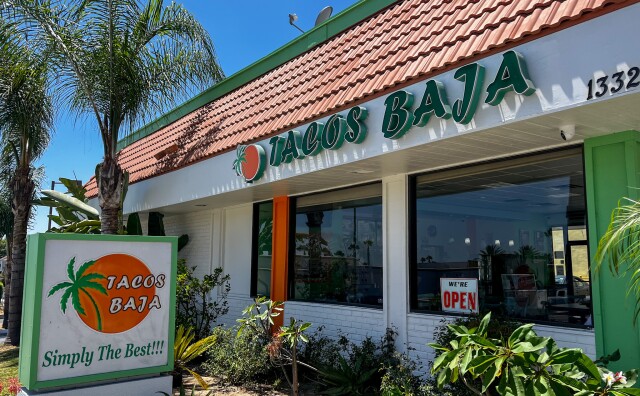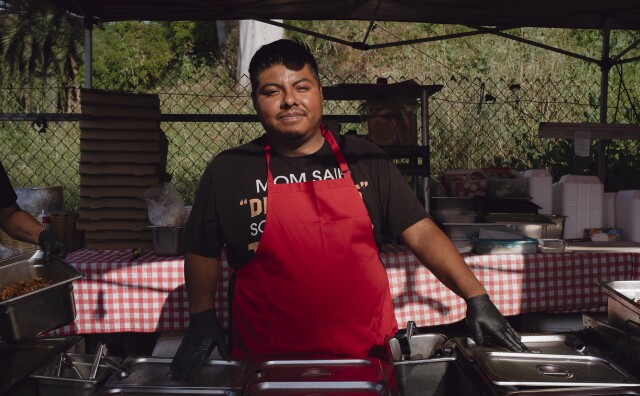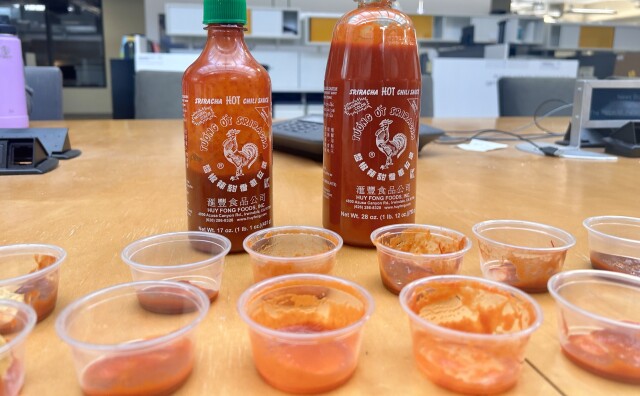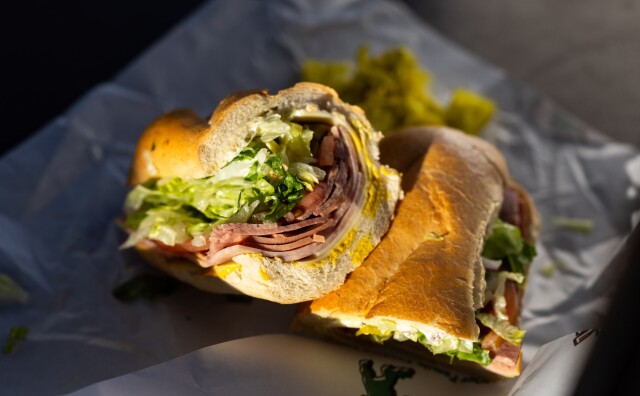It’s the age-old question: Can you actually find good pizza in Los Angeles?
Ask any New Yorker, Chicagoan, Detroit-style lover, and the answer likely is no.
While we believe that L.A. is producing truly great pizza right now — some are calling it a "pizza renaissance" — there are still those who believe that New York retains the bragging rights for pie-making perfection.
It’s the decades-old deck ovens, the production process, the generational wisdom, the ingredients, they say.
Others say it’s the water, and that in California, we simply don’t have the “right” water to make “real” pizza.
But what if you could replicate the water from any of these cities right here in L.A.?
What's in the water?
It’s not just pizza either. Many have pointed to the region’s water for why the city’s bagels are also so good.
And while there are a lot of factors that contribute to the taste, there is something different about the water that comes out of the tap in the Big Apple.
Most of New York City’s tap water — which is said to be very similar to the tap water in Naples, Italy — is pumped in from the Catskills, which naturally creates a high mineral content and close to neutral pH levels. Some say this helps proteins in the flour bond together more tightly, making the dough stronger, more elastic, and have a quicker rise time.
In comparison, L.A.’s tap water is less mineralized, more chlorinated and much “harder” than N.Y.’s. Not only does this yield a different taste — one which some have deemed to be less superior — it also has a significant effect on the pizza-making process.
One New York-based company is betting on the water theory — and some L.A. pizzerias are, too.
New York WaterMaker is a water replication system that's able to reproduce water from any region in the world for pizza, baking, bagels and even coffee.
“New York water has ideal characteristics for flavor and gluten formation and yeast activity in dough,” says Paul Errigo, CEO of New York WaterMarker and of course, a homegrown New Yorker. “Which is critical for elasticity and texture and rise in baked products.”
To make dough is simple: flour, olive oil, salt, yeast and water.
But the water above all else, Errigo argues, significantly affects the texture, taste and consistency of it.
“You can use all the best yeast and flour, but at the end of the day, most of the product is water,” he says.
Recreating NYC tap
Errigo takes regular trips to see family in Florida. Prior to one of those visits in 2018, he, as usual, stocked up on Staten Island breads and bagels to bring to his relatives.
Errigo worked at a water filtration company at the time and was chatting about the subpar water in Florida with one of the company’s chemists, who had a thought: They could fix that problem.
And so the world’s first water replication system was born.
The process — which includes intensive filtering and mineralization to alter the molecular structure of the input water — can yield water that mimics source water from any region. The system also allows food service companies with multiple locations to ensure their water is consistent across the board.
Basically, you can make L.A.'s notoriously “hard” tap water mimic the soft water of the Swiss Alps — or N.Y.C.’s — by putting it through this system. “We’ve done video documented taste tests,” Errigo says. “It’s incredible how much better the NY water — or NY replicated water — really makes the dough taste.”
L.A. pizzerias don’t disagree.
A 'different' taste
As we noted, L.A. is experiencing a pizza renaissance in its own right, with several eateries getting high marks for their pies. But several pizzerias here are taking advantage of New York WaterMaker’s technology, in an attempt to bring New York-tasting pizza to our city.
At LBK in Studio City, pizza chef Ed Clemente uses the system to replicate Neapolitan-style N.Y. pizza.
“Our customers love it,” Clemente said. “No matter how good a pizza is out here, there’s a different flavor when it’s real NYC water.”
“It definitely makes a difference,” said Nick Grasu, one of the owners of Greco’s New York Pizzeria, which has been serving N.Y.-style pizza to Angelenos since 1979. “The dough comes out different, better texture, quality and taste.”
Other pizza spots that use the system include Prince Street Pizza — which hails from N.Y. originally — and Brooklyn Square.
Of course, water isn’t the only ingredient that can make or break a great dough: “It doesn’t guarantee it’s going to be the best pizza or bagel you’ve ever had,” Errigo says. “There’s tons of bad pizza in New York, of course.”
Grasu of Greco’s emphasized that the secret is not necessarily in the water, but in the second reheat, when the pie becomes firm, and the crust crispier, ideal for the iconic New York slice.
“Water is just one of the many factors that makes a high quality, N.Y. pizza,” he says.
New York mimicked tap water or not, Los Angeles is establishing itself as a real pizza city.
Hundreds of gourmet pizzerias have popped up around L.A. in recent years, taking advantage of the abundance of fresh produce in the region and marrying uniquely SoCal flavors and influences, like Quarantine Pizza Co’s “Al Pastor” pie, which uses blue corn in the dough.
But that’s the beauty of L.A. (and why our food editor claims L.A. is currently producing better pizza than any city across the globe). With so many cultural influences on our food scene — and a lack of specific standards for pizza — there is really something for everyone: a classic NY slice, or a “queso taco” tasting pie.












